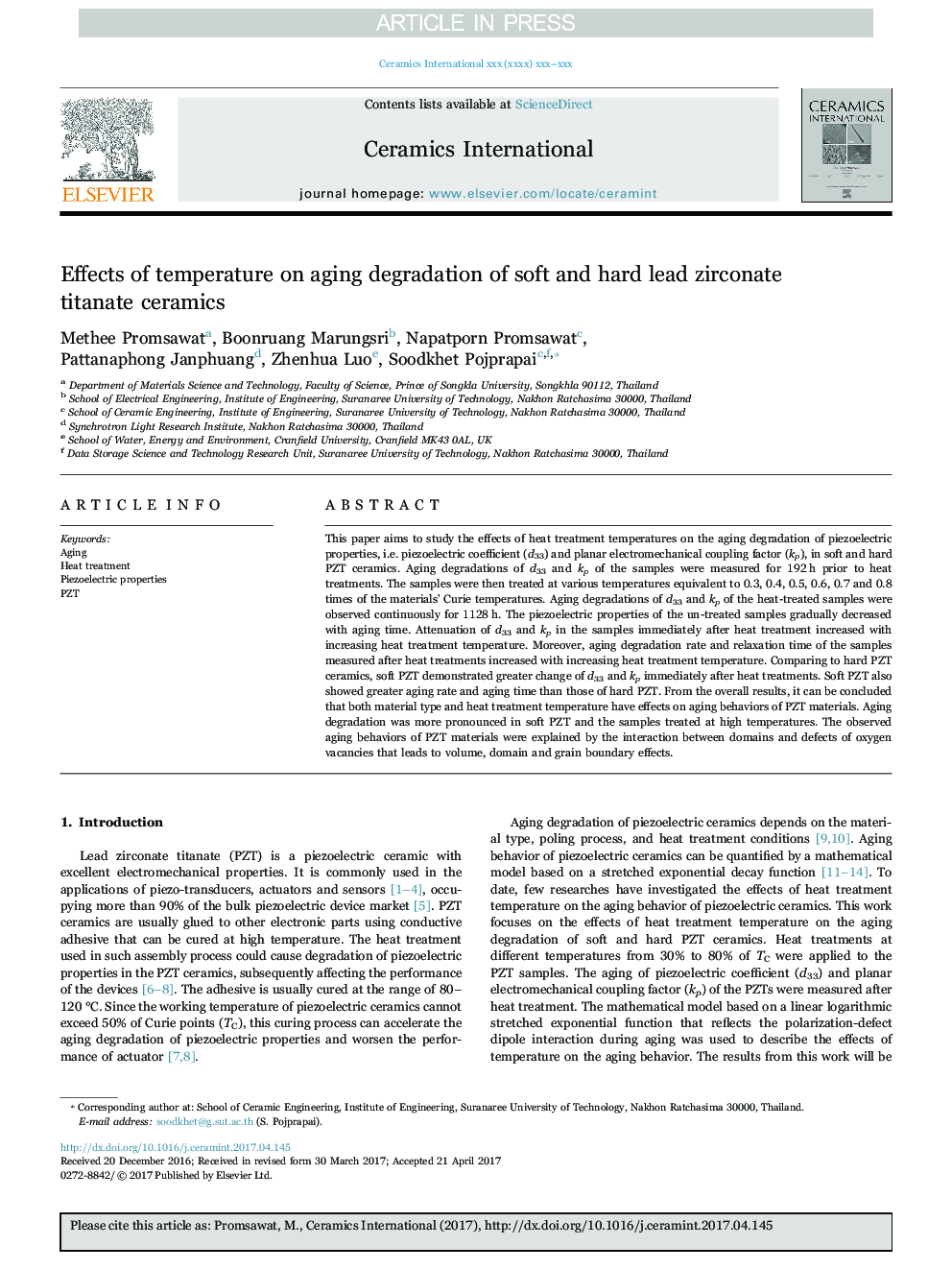| Article ID | Journal | Published Year | Pages | File Type |
|---|---|---|---|---|
| 5437621 | Ceramics International | 2017 | 6 Pages |
Abstract
This paper aims to study the effects of heat treatment temperatures on the aging degradation of piezoelectric properties, i.e. piezoelectric coefficient (d33) and planar electromechanical coupling factor (kp), in soft and hard PZT ceramics. Aging degradations of d33 and kp of the samples were measured for 192Â h prior to heat treatments. The samples were then treated at various temperatures equivalent to 0.3, 0.4, 0.5, 0.6, 0.7 and 0.8 times of the materials' Curie temperatures. Aging degradations of d33 and kp of the heat-treated samples were observed continuously for 1128Â h. The piezoelectric properties of the un-treated samples gradually decreased with aging time. Attenuation of d33 and kp in the samples immediately after heat treatment increased with increasing heat treatment temperature. Moreover, aging degradation rate and relaxation time of the samples measured after heat treatments increased with increasing heat treatment temperature. Comparing to hard PZT ceramics, soft PZT demonstrated greater change of d33 and kp immediately after heat treatments. Soft PZT also showed greater aging rate and aging time than those of hard PZT. From the overall results, it can be concluded that both material type and heat treatment temperature have effects on aging behaviors of PZT materials. Aging degradation was more pronounced in soft PZT and the samples treated at high temperatures. The observed aging behaviors of PZT materials were explained by the interaction between domains and defects of oxygen vacancies that leads to volume, domain and grain boundary effects.
Related Topics
Physical Sciences and Engineering
Materials Science
Ceramics and Composites
Authors
Methee Promsawat, Boonruang Marungsri, Napatporn Promsawat, Pattanaphong Janphuang, Zhenhua Luo, Soodkhet Pojprapai,
